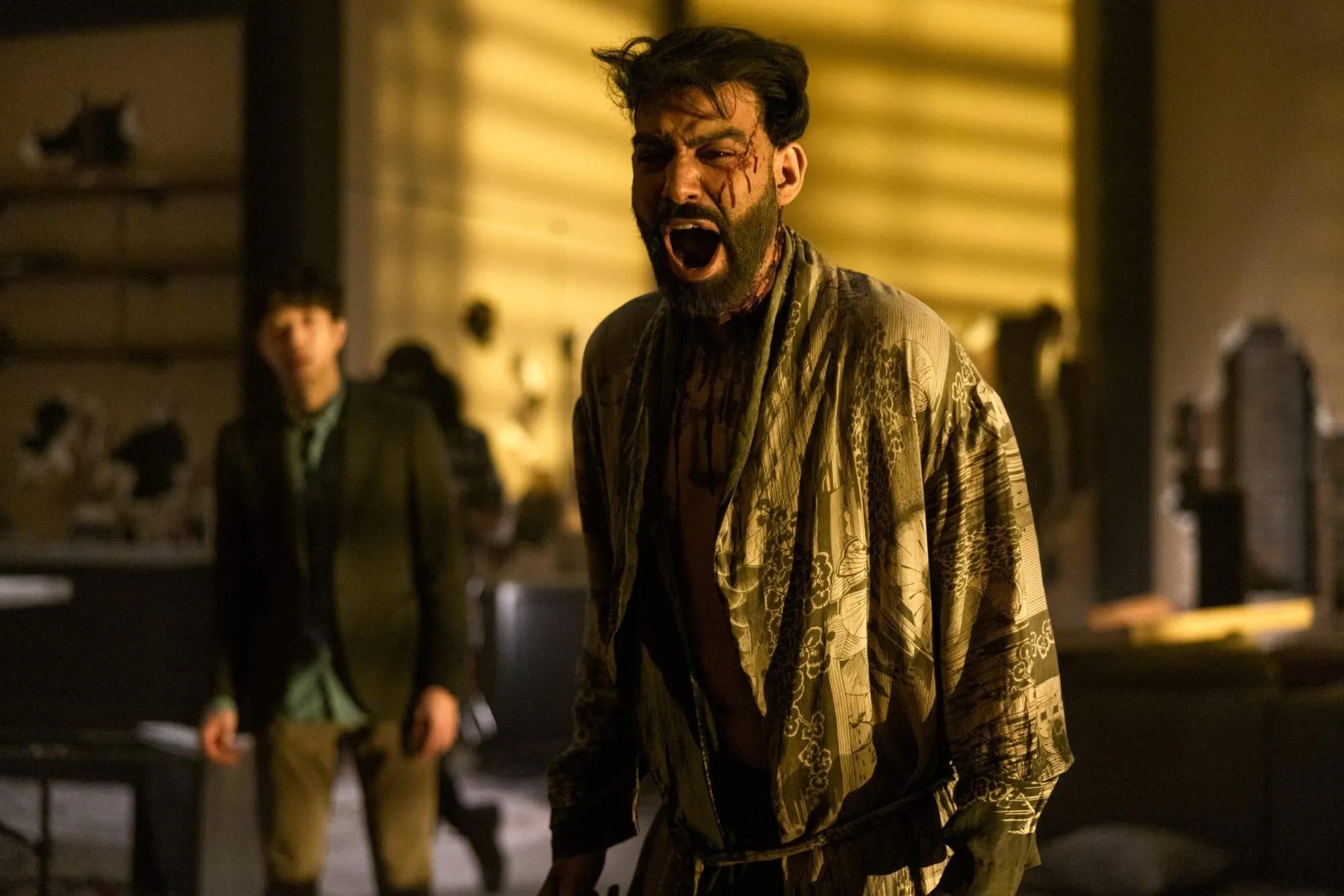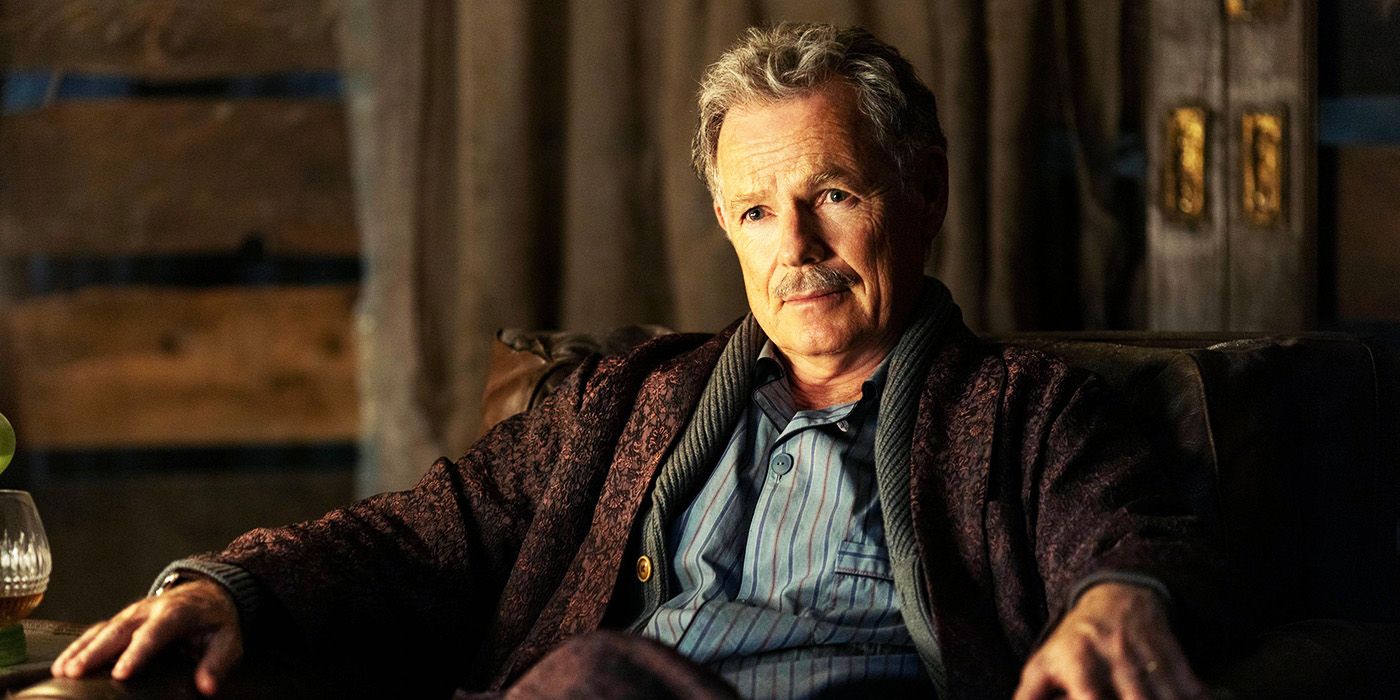Table Of Content

Poe employs the word “house” metaphorically, but he also describes a real house. Not only does the narrator get trapped inside the mansion, but we learn also that this confinement describes the biological fate of the Usher family. The family has no enduring branches, so all genetic transmission has occurred incestuously within the domain of the house. The peasantry confuses the mansion with the family because the physical structure has effectively dictated the genetic patterns of the family.
Bruce Greenwood
Perhaps the most obvious parallel lies in the initially shallow crack in the manor, representing the impending destruction of the house. Because the last of the Usher line are twins, that the crack divides the house in two signals their eternal separation in death. Usher has been reimagined as the head of a massive pharmaceutical company he runs with his twin sister, Madeline (Mary McDonnell). Every episode includes flashbacks to a young Roderick (Zach Gilford), Madeline (Willa Fitzgerald), and Annabel Lee (Katie Parker), Roderick’s first wife. These fill in how the Ushers made their fortune, but they’re kind of a narrative drag. It’s important that Roderick and Madeline are cruel, selfish creatures—less so how they got that way.
Limited Series – The Fall of the House of Usher
According to Roderick, Madeline suffers from a cataleptic disease that has gradually limited her mobility. As Roderick talks about his sister’s illness, the narrator sees her pass through a distant part of the house. From the start of the first episode of The Fall of the House of Usher, we know that all of Roderick Usher's children are dead.
What's on in Downtown Los Angeles?
” “No, not before,” he replies in one of the show’s many glimpses of Flanagan’s viciously dark sense of humor. (Poe had one too.) Roderick has been haunted by all his awful children who have shuffled off this mortal coil, and it’s because it feels like the ghosts are finally coming for him that he is ready to confess. He’s having visions of monstrous ghosts, including the recurring specter of Verna (Carla Gugino), a figure that connects most of these tall tales as a sort of vengeful force of karma, the devil come to take what she’s due from a man who profited off the pain of others. ‘The Fall of the House of Usher’ is an 1839 short story by Edgar Allan Poe ( ), a pioneer of the short story and a writer who arguably unleashed the full psychological potential of the Gothic horror genre.
This show is featured in the following articles.
She invests all of her identity in her body, whereas Roderick possesses the powers of intellect. In spite of this disadvantage, Madeline possesses the power in the story, almost superhuman at times, as when she breaks out of her tomb. Some scholars have argued that Madeline does not even exist, reducing her to a shared figment Roderick’s and the narrator’s imaginations. But Madeline proves central to the symmetrical and claustrophobic logic of the tale. Madeline stifles Roderick by preventing him from seeing himself as essentially different from her. Roderick has come from a miserable childhood with a puritanical, sickly mother who believes that “pain and suffering are the kiss of Jesus”.
Some of the CGI, particularly one scene involving bodies falling from the sky, is unintentionally funny. Problematically, Flanagan tends to conflate queerness with depravity and sexual fluidity is punished here with an unnerving flourish. But the show remembers to be actually scary, with truly inspired uses of chimps, mirrors and sprinkler systems. There’s no question that The Fall of the House of Usher ranks among Flanagan’s finest works.
After all, Roderick Usher is a poet and artist, well-read (witness the assortment of books which he and the narrator read together), sensitive and indeed overly sensitive (to every sound, taste, sight, touch, and so on). Many critics have interpreted the story as, in part, an autobiographical portrait of Poe himself, although we should be wary, perhaps, of speculating too much about any parallels. The secret that is buried and then comes to light (represented by Madeline) is never revealed. The symbol which represents the secret – Madeline herself – is hidden away by Roderick, but that symbol returns, coming to light at the end of the story and (in good Gothic fashion) destroying the family for good.
During one sleepless night, the narrator reads aloud to Usher as eerie sounds are heard throughout the mansion. He witnesses Madeline's reemergence and the subsequent, simultaneous death of the twins. The narrator is the only character to escape the House of Usher, which he views as it cracks and sinks into the mountain lake. Siblings Roderick and Madeline Usher have built a pharmaceutical company into an empire of wealth, privilege and power; however, secrets come to light when the heirs to the Usher dynasty sta... One of the most interesting and perplexing threads of the finale comes with the way Arthur Pym's story wraps up. It's through this framework—Roderick telling stories to Dupin—that we learn just about everything that has happened to the present point.

How did Lenore, Madeline, and Roderick all die?
There is only a small crack from the roof to the ground in the front of the building. He has come to the house because his friend Roderick sent him a letter earnestly requesting his company. Roderick wrote that he was feeling physically and emotionally ill, so the narrator is rushing to his assistance. The narrator mentions that the Usher family, though an ancient clan, has never flourished. Only one member of the Usher family has survived from generation to generation, thereby forming a direct line of descent without any outside branches. The Usher family has become so identified with its estate that the peasantry confuses the inhabitants with their home.
For one, “the entire family lay in the direct line of descent,” meaning that only one son from each generation survived and reproduced. Poe implies incestuous relations sustained the genetic line and that Roderick and Madeline are the products of extensive intermarriage within the Usher family. To secure their fortune — and future — two ruthless siblings build a family dynasty that begins to crumble when their heirs mysteriously die, one by one. As Roderick finishes his story, an eyeless and bloodied Madeline suddenly bursts out of the basement and attacks Roderick as the house begins to crumble around them.
Auguste Dupin, an Assistant United States Attorney who dedicated his career to exposing Fortunato's corruption, to his childhood home, where he tells the true story of his family and unveils the Ushers' darkest secrets. ‘The Fall of the House of Usher’ is probably Edgar Allan Poe’s most famous story, and in many ways it is a quintessential Gothic horror story. We have a mysterious secret afflicting the house and eating away at its owner, the Gothic ‘castle’ (here, refigured as a mansion), premature burial (about which Poe wrote a whole other story), the mad owner of the house, and numerous other trappings of the Gothic novel. Poe condenses these into a short story and plays around with them, locating new psychological depths within these features.
Late one stormy night, Roderick Usher (Bruce Greenwood) invites an investigator named C. He offers to lay out the truth about his family’s criminal, violent history. All of these nightmarish visions are attached to the family drama that Usher offers up for Dupin, giving the season a clever episodic structure in that each chapter intertwines a different Poe source into the overall saga of the Ushers. The tale highlights the Gothic feature of the doppelganger, or character double, and portrays doubling in inanimate structures and literary forms. The narrator, for example, first witnesses the mansion as a reflection in the tarn, or shallow pool, that abuts the front of the house. The mirror image in the tarn doubles the house, but upside down—an inversely symmetrical relationship that also characterizes the relationship between Roderick and Madeline.
We learn about the violent and untimely deaths of each of Roderick's children—whether from Annabel Lee (Katie Parker) or "bastards"—and how in every case, it was their own failings that led to their demise. We also learn, through a series of flashbacks, about how Roderick (played in younger form by Zach Gilford) rose to power within Fortunato, egged on by his duplicitous and cold sister, Madeline (played by Mary McDonnell in the present and Willa Fitzgerald in flashbacks). English majors will likely know where some of the stories are going just by seeing the episode names.
When the dragon's death cries are described, a real shriek is heard, again within the house. As he relates the shield falling from off the wall, a hollow metallic reverberation can be heard throughout the house. At first, the narrator ignores the noises, but Roderick becomes increasingly hysterical.
Every hidden Poe reference in 'Fall of the House of Usher' - Mashable
Every hidden Poe reference in 'Fall of the House of Usher'.
Posted: Fri, 13 Oct 2023 07:00:00 GMT [source]
As the series draws to a close, Verna—whose name is an anagram of the titular bird in Poe's classic 1845 poem "The Raven"—is shown placing an item on each of the Usher's graves that represents their respective downfalls, closing the loop of her karmic retribution. Decades later, once it became clear that Verna was the one killing off the Usher children, Madeline tried to sidestep the deal by convincing Roderick to kill himself. But Verna wasn't willing to let him get off that easy and brought him back to face the full extent of his reckoning, the death of his granddaughter Lenore (Kyliegh Curran), the only morally good Usher.
Flanagan has form with making tributes to some of horror’s most beloved oeuvres. He took on Shirley Jackson in The Haunting of Hill House (which was fabulous), Henry James in The Haunting of Bly Manor (spooky but saccharine) and Christopher Pike in The Midnight Club (meh). Thankfully, Flanagan and Poe’s sensibilities prove a winning pairing, staying on the edge of terror without cascading into jump scares and sentimentality. Guilt permeates every frame of Flanagan’s Poe universe, and buys into not so much the horror as the terror. An interpretation which has more potential, then, is the idea that the ‘house of Usher’ is a symbol of the mind, and it is this analysis which has probably found the most favour with critics. ‘The Fall of the House of Usher’ can also be analysed as a deeply telling autobiographical portrait, in which Roderick Usher represents, or reflects, Poe himself.

No comments:
Post a Comment